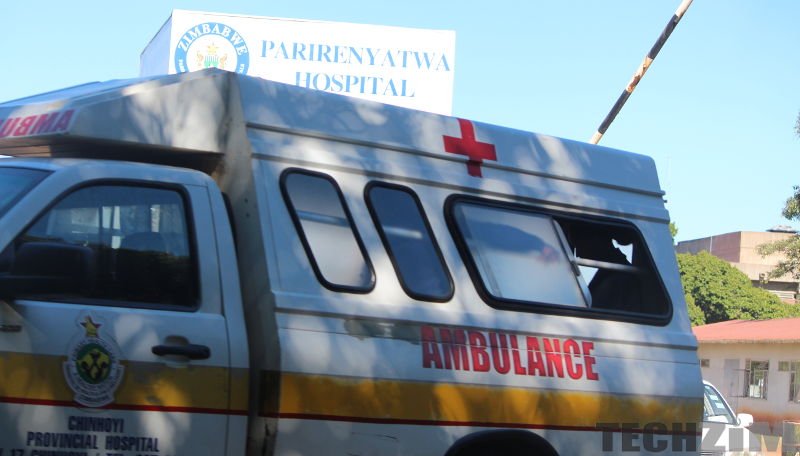Econet has had EcoSure for a while now and NetOne recently launched OneCover, both providing affordable funeral cover to the masses. We applaud these initiatives but even more important is healthcare for the living. Traditional medical insurance is expensive and inconvenient for the average person. The number of hoops you have to jump through staggers the mind. Enter clinicPesa.
clinicPesa is a micro-savings platform which helps users set aside dedicated healthcare funds. It is a Ugandan startup which we could learn from here in Zimbabwe. Clinics, hospitals and pharmacies need to register on the platform and users can pay their medical bills or buy drugs from the registered institutions.
Users only need a mobile money registered phone number to start saving. In Zimbabwe that would be EcoCash, telecash and OneWallet (soon to be OneMoney) registered phone numbers. Users may not be required to pay a fixed monthly premium but may save as they see fit. The funds so saved are then used when needed and if not used in a year bonuses are earned and added on to the saved funds and carried into the next year. A user need not be restricted to just one mobile money account.
Users can access their clinicPesa accounts using various platforms. WhatsApp, USSD, Messenger, Facebook Web App, Telegram and an Online Web System all being available.
Loans are also availed to users registered on the platform in cases of emergency, subject to a vetting process obviously. This is essential as oftentimes medical bills will be more than the saved funds.
Businesses can also set aside funds for their employees. Again, if funds were not used up in a year, the balance is pushed to the next year. Businesses can use bank transfers to make contributions for their employees. They also can approve or regulate employees’ expenditure remotely.
The government could also chip in and for once provide the people with proper healthcare. Or at least they could promote such an initiative and ensure there are no hurdles for a platfrom like clinicPesa to obtain partners especially from the non governmental organisation community.
Healthcare institutions registered on the platform get to be paid instantly by patients who have accumulated their funds over time. There is flexibility in collection of the funds, daily, weekly, monthly and quarterly collections all being offered.
The clinicPesa process is Register > Account Verification > Save > Get A Bonus > Get a Healthcare Loan > Pay Medical Bill. Simple enough to be understood by everyone.
Millions of Zimbabwe do not have adequate health insurance if they even have any. An initiative such as this one would change the lives of many, there is peace of mind in knowing that one and their family are covered. Seeing as millions of us have mobile money accounts already, it would be convenient and relatively easy to register for a platform like clinicPesa.
Do you think we need a clinicPesa of our own here in Zimbabwe? Do you think it would work? Tell us what you think in the comments below.

4 comments
The intricacies of the insurance industry are such that this program would be difficult to implement. Medical aid pays out on a set (AHFoZ) tariff whereas doctors/health institutions may charge more than that tariff.
From a further financial view, the likelihood of one using the medical aid (insurance) is VERY high as compared to funeral assurance where death doesn’t occur on a regular statistical basis. The premiums would end up matching those of conventional medical aid schemes and therefore remove the allure.
A further consideration on the payout is the timing. The doctor/health institution needs to submit a claim form with the tariff code and how much they charged for that service along with your details. The insurance then has to review this information (manually) and make assessments on the amount to be paid to the the doctor/health institution within 60 days (hopefully – there are many cases of doctors being paid after 120+ days). Following such assessment, the patient/claimant then needs to pay a shortfall (if the value of service exceeded the tariff amount or plan limits).
So unless this is just catering specifically for your run-of-the-mill clinic visit or doctor’s check-up, Medical Aid wins.
I think this method is not like medical aid and should not be compared to it. This merely facilitates saving for a rainy day whilst knowing you can get a loan if those savings are not enough. It’s just a piggy bank which earns interest and employers can add to it.
Medical Savings schemes currently exist (e.g. First Mutual) but they operate along the same lines as Medical Aid schemes. It’s similar to EcoSure working just like other existing Funeral Assurance schemes.
Excellent analysis! Point of correction, most medical aid societies pays a AHFoZ rates for the regular packages. A few higher premiumed medical aid societies (and packages) don’t have such restrictions.